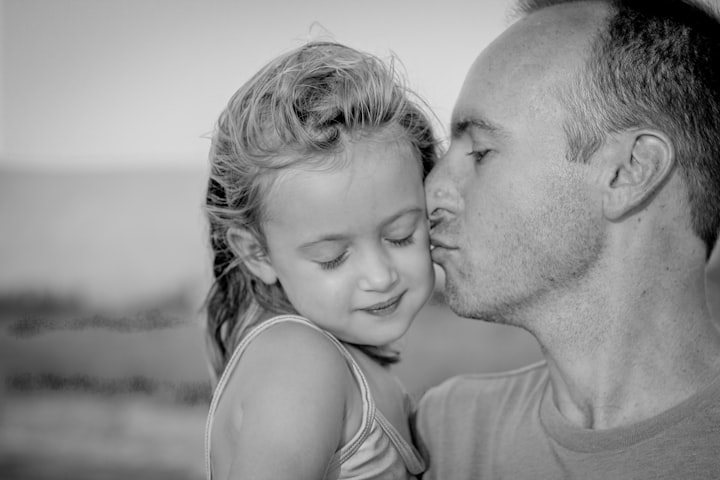Fatherless Daughters
Understanding the Effects of Paternal Absence

Kids have a hole in their soul in the shape of their dad. And if a father is unwilling or unable to fill that hole, it can leave a wound that is not easily healed. — Roland Warren
Fatherless daughters have experienced the absence of a father figure in their lives. The term can refer to a variety of circumstances, including fathers who are physically absent due to divorce, separation, estrangement, or death, as well as those who are emotionally absent due to neglect or disengagement. Fatherless daughters face unique and complex challenges in their development, and the effects of paternal absence can manifest differently depending on the individual circumstances. For example, daughters who experience the loss of a father due to death may experience different psychological and emotional effects than those who experience the absence of a father due to divorce or abandonment. The impact of paternal absence can have significant and long-lasting effects on a daughter’s development, including her psychological, social, and emotional well-being.
Psychological Effects
The absence of a father figure can have significant psychological effects on a daughter. Studies have shown that father absence is associated with an increased risk of depression, anxiety, and other mental health problems in daughters. Fatherless daughters may also experience lower levels of self-esteem, feelings of abandonment, and a lack of confidence in their ability to form healthy relationships (Markowitz & Ryan, 2016; McLanahan et al., 2013; Teel et al., 2016). These psychological effects may be more pronounced during adolescence when daughters are navigating the challenges of identity formation and relationship development.
Social Effects
Father absence can also have significant social effects on daughters. Studies have shown that fatherless daughters may be more likely to engage in risky behaviors such as drug use, alcohol consumption, and sexual activity at a younger age. They may also be more likely to have lower academic achievement, drop out of school, and experience poverty (Bass & Warehime, 2011; Guardia et al., 2014). The absence of a father figure can also impact a daughter’s ability to form healthy relationships with peers and adults, and may lead to a lack of trust and feelings of social isolation.

Emotional Effects
The emotional effects of father absence on daughters can be particularly pronounced. Daughters who grow up without a father figure may experience a range of emotions, including anger, sadness, and confusion. They may struggle to understand their emotions and develop coping mechanisms, which can lead to ongoing emotional difficulties throughout their lives. Fatherless daughters may also struggle with feelings of rejection and abandonment, which can impact their ability to form healthy attachments and relationships (McLanahan et al., 2013; Papernow, 1993).
Strategies for Promoting Positive Outcomes
Despite the challenges associated with father absence, there are strategies that can be employed to promote positive outcomes for fatherless daughters. One key factor that can contribute to positive outcomes for fatherless daughters is the presence of healthy male role models in their lives. These role models can take many forms, including grandfathers, uncles, family friends, coaches, and teachers. Research has shown that positive relationships with male mentors can help to mitigate the negative effects of father absence on daughters’ psychological and emotional well-being (Markowitz & Ryan, 2016; McLanahan et al., 2013; Teel et al., 2016). Positive male role models can provide emotional support, guidance, and encouragement, and can help daughters to develop a sense of self-worth and self-confidence.
It is important to recognize that every fatherless daughter is unique and will require individualized support and care. This support may include counseling, therapy, or other forms of mental health support to address the emotional and psychological challenges associated with father absence. Additionally, support may need to be provided in areas such as academic achievement and social development to help daughters build the skills and confidence necessary to succeed.
Fatherless daughters face a unique set of challenges, and the impact of paternal absence can be significant and long-lasting. However, positive outcomes are possible with the right support and care. The psychological, social, and emotional effects of father absence can be mitigated through the development of positive relationships with male mentors and the provision of emotional and psychological support. Parents, caregivers, and mental health professionals need to be aware of the unique needs and challenges faced by fatherless daughters and to provide the support and care necessary to promote positive outcomes and well-being.

References:
Bass, L. E. & Warehime, M.N. (2011), Family Structure and Child Health Outcomes in the United States. Sociological Inquiry, 81: 527–548. https://doi.org/10.1111/j.1475-682X.2011.00391.x
Guardia, A. C. L., Nelson, J. A., & Lertora, I. M. (2014). The Impact of Father Absence on Daughter Sexual Development and Behaviors: Implications for Professional Counselors. The Family Journal, 22(3), 339–346. https://doi.org/10.1177/1066480714529887
Markowitz, A. J., & Ryan, R. M. (2016). Father Absence and Adolescent Depression and Delinquency: A Comparison of Siblings Approach. Journal of marriage and the family, 78(5), 1300–1314. https://doi.org/10.1111/jomf.12343
McLanahan, S., Tach, L., & Schneider, D. (2013). The Causal Effects of Father Absence. Annual Review of Sociology, 39:1, 399–427
Papernow, P.L. (1993). Becoming A Stepfamily: Patterns of Development in Remarried Families (1st ed.). Gestalt Press. https://doi.org/10.4324/9781315798974
Teel, K. S., Verdeli, H., Wickramaratne, P., Warner, V., Vousoura, E., Haroz, E. E., & Talati, A. (2016). Impact of a Father Figure’s Presence in the Household on Children’s Psychiatric Diagnoses and Functioning in Families at High Risk for Depression. Journal of child and family studies, 25(2), 588–597. https://doi.org/10.1007/s10826-015-0239-y
About the Creator
Donna L. Roberts, PhD (Psych Pstuff)
Writer, psychologist and university professor researching media psych, generational studies, human and animal rights, and industrial/organizational psychology






Comments (2)
Very interesting
🥹❤️❤️